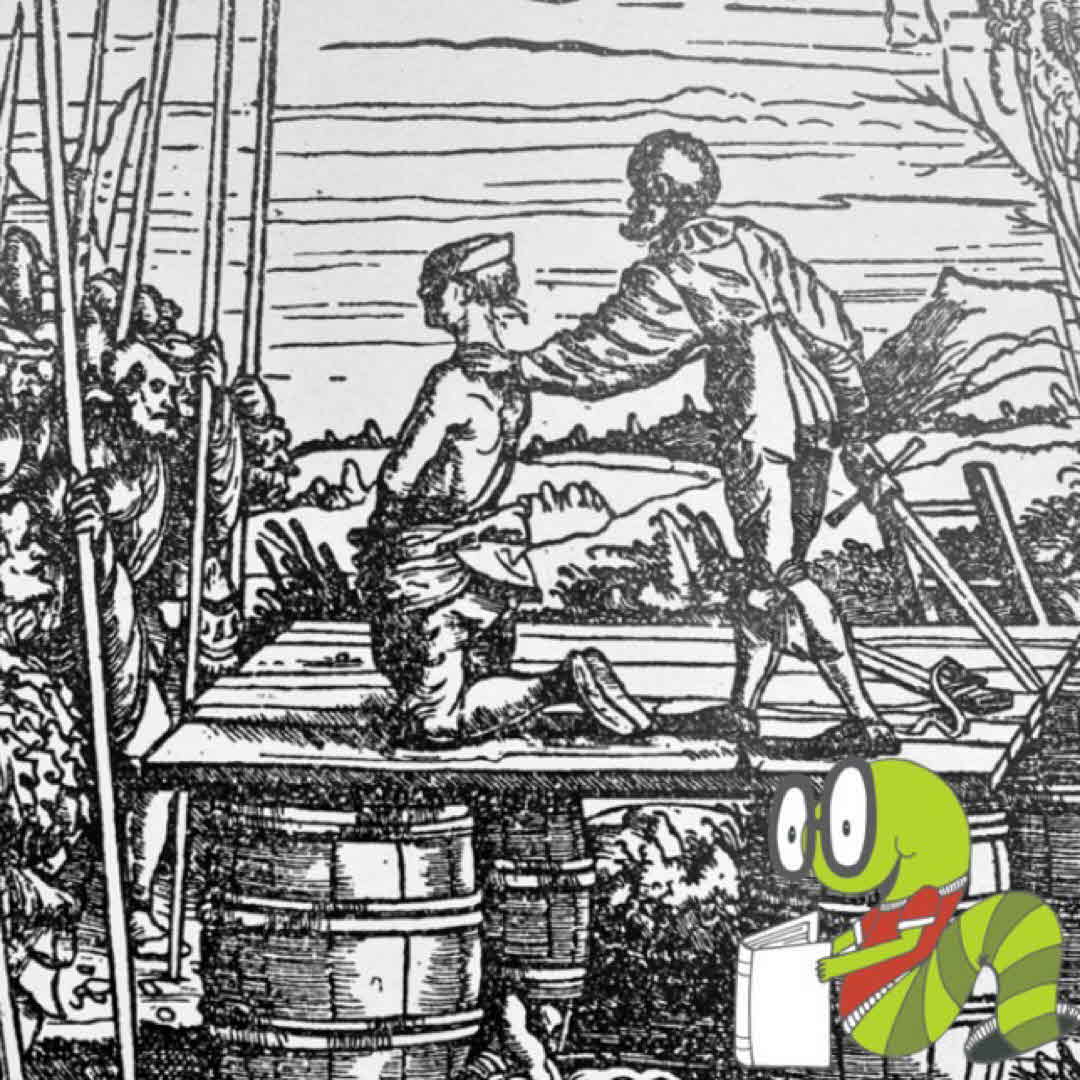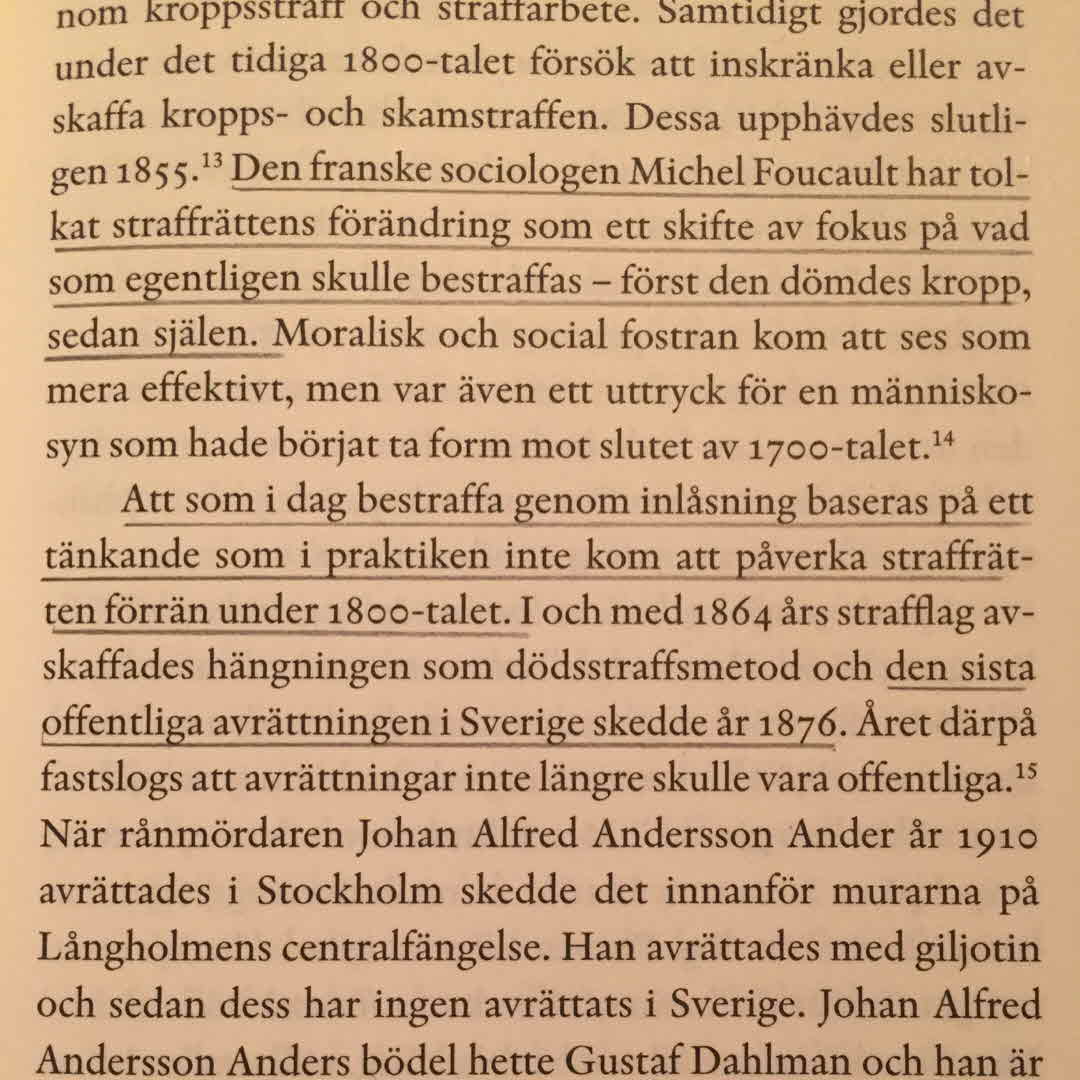
I won't finish any more books tomorrow, so this is it! Pic from the island beyond ours, at a place actually called "The End of the World". #readingstats #stats #tricoursstats

I won't finish any more books tomorrow, so this is it! Pic from the island beyond ours, at a place actually called "The End of the World". #readingstats #stats #tricoursstats

A fascinating book on executioners, their place in society and the use of corporal punishment and executions in 17th century Sweden. It's a book that, despite its quite old fashioned language, is a very accessible and rather quick read. There's not much focus on the grisly part of executions, even though they're not altogether left out!

"Hanging was a male punishment [...] Women in the Nordic countries were not punished by hanging but by being buried alive or stoned." I think I'd rather hang...

I've only read 63 pages, but omg what a page turner! Death, execution and torture - apparently Sweden was an exception in Europe in that the torture (or "extras") that was applied to especially heinous criminals was carried out AFTER the execution.

I just started this fascinating book on executioners in the 17th century in Sweden. I find legal history very interesting, and just like with Slavic legal history (which I've read a bit of), the Scandinavian goes from monetary compensation, to physical punishment/death, to imprisonment for serious crimes. The last public execution in Sweden was held in 1876, the last ever execution in 1910.